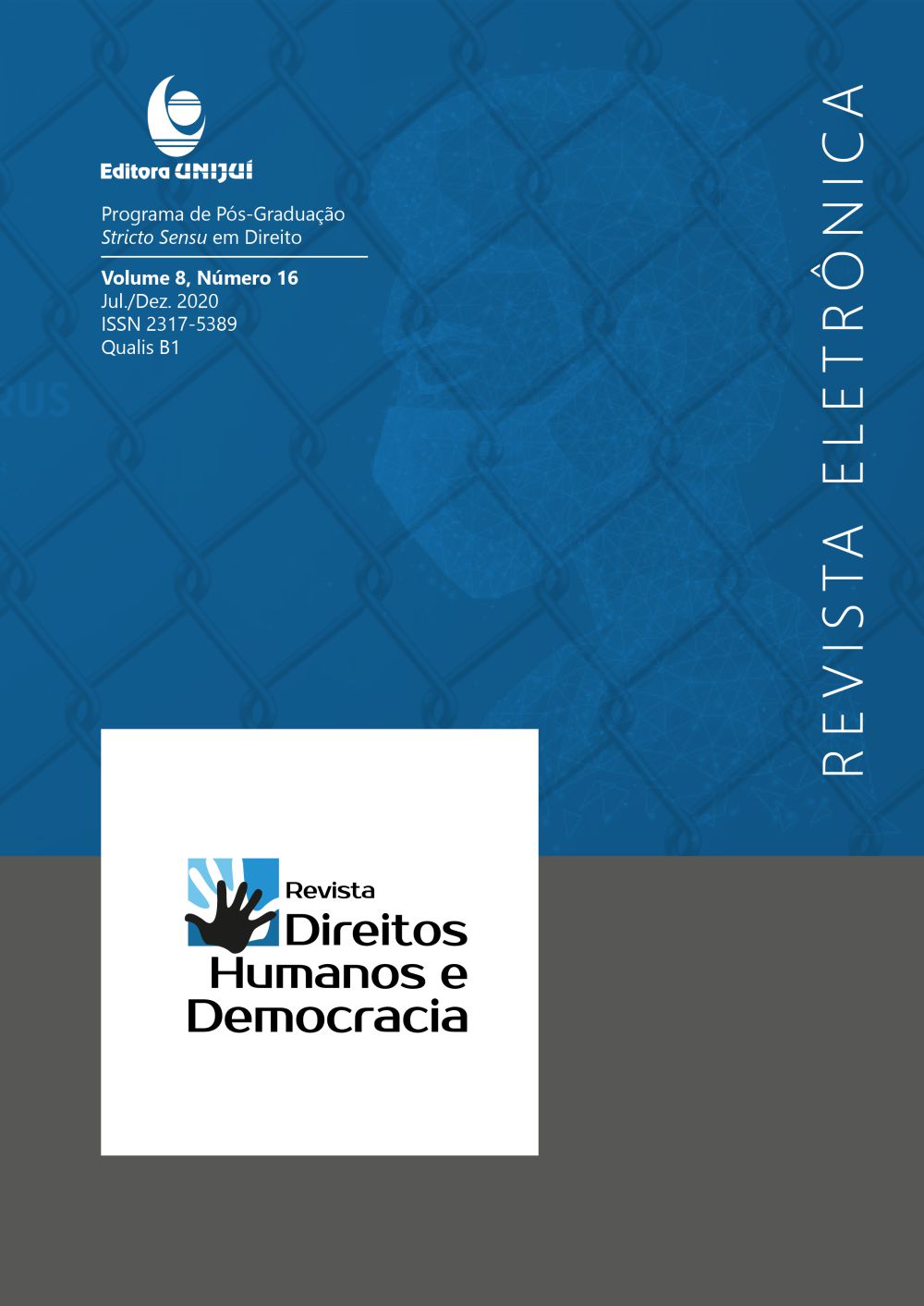A DOUTRINA DA RES INTERPRETATA NO SISTEMA INTERAMERICANO DE DIREITOS HUMANOS: DIFERENCIAIS, POTENCIALIDADES E DESAFIOS
DOI:
https://doi.org/10.21527/2317-5389.2020.16.75-94Palavras-chave:
Res Interpretata, Corte Interamericana de Direitos Humanos, Efeito erga omnes, Direito Internacional dos Direitos HumanosResumo
O presente artigo analisa a eficácia res interpretata das decisões da Corte Interamericana de Direitos Humanos. Para tanto, é abordado o surgimento da doutrina da res interpretata no sistema europeu de direitos humanos, incluindo as implicações relacionadas à compreensão da Convenção Europeia como living instrument e à teoria da margem de apreciação. Na sequência, é apontada a migração da referida doutrina para a jurisprudência interamericana, com especial destaque ao controle de convencionalidade e às considerações feitas pelo juiz Mac-Gregor no caso Gelman v. Uruguai. Além disso, são discutidos os diferenciais, potencialidades e desafios do reconhecimento da Corte de San José como órgão difusor de padrões de interpretação e aplicação de direitos humanos para além dos casos concretos a ela submetidos, analisando-se, para fins exemplificativos, as repercussões da posição da corte regional sobre as leis de anistia latino-americanas. A pesquisa utiliza-se do método dedutivo, mediante revisão bibliográfica e jurisprudencial. Ao final, conclui-se que as peculiaridades do sistema interamericano permitem um melhor desenvolvimento da doutrina da res interpretata, sendo ressalvada a necessidade de aprimoramento do diálogo entre a Corte Interamericana e as autoridades internas dos Estados.
Downloads
Publicado
Como Citar
Edição
Seção
Licença
Ao publicar na Revista Direitos Humanos e Democracia, os autores concordam com os seguintes termos:
Os trabalhos seguem a licença Creative Commons Atribuição 4.0 Internacional (CC BY 4.0), que permite:
Compartilhar — copiar e redistribuir o material em qualquer meio ou formato;
Adaptar — remixar, transformar e criar a partir do material para qualquer fim, inclusive comercial.
Essas permissões são irrevogáveis, desde que respeitados os seguintes termos:
Atribuição — os autores devem ser devidamente creditados, com link para a licença e indicação de eventuais alterações realizadas.
Sem restrições adicionais — não podem ser aplicadas condições legais ou tecnológicas que restrinjam o uso permitido pela licença.
Avisos:
A licença não se aplica a elementos em domínio público ou cobertos por exceções legais.
A licença não garante todos os direitos necessários para usos específicos (ex.: direitos de imagem, privacidade ou morais).
A revista não se responsabiliza pelas opiniões expressas nos artigos, que são de exclusiva responsabilidade dos autores. O Editor, com o apoio do Comitê Editorial, reserva-se o direito de sugerir ou solicitar modificações quando necessário.
Somente serão aceitos artigos científicos originais, com resultados de pesquisas de interesse que não tenham sido publicados nem submetidos simultaneamente a outro periódico com o mesmo objetivo.
A menção a marcas comerciais ou produtos específicos destina-se apenas à identificação, sem qualquer vínculo promocional por parte dos autores ou da revista.
Contrato de Licença: Os autores mantém os direitos autorais sobre seu artigo, e concedem a Revista Direitos Humanos e Democracia o direito de primeira publicação.













